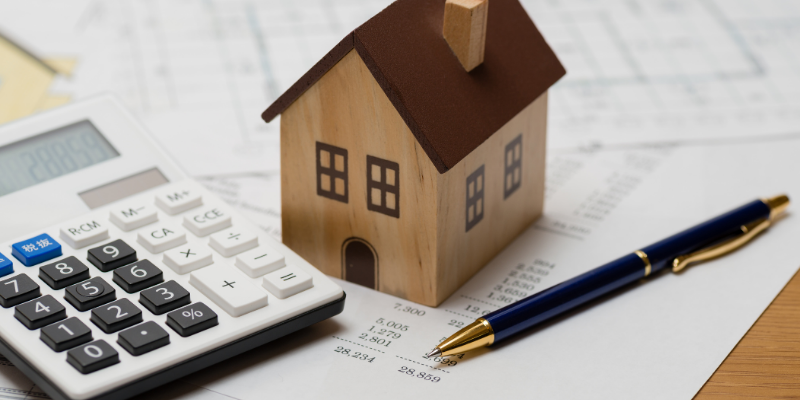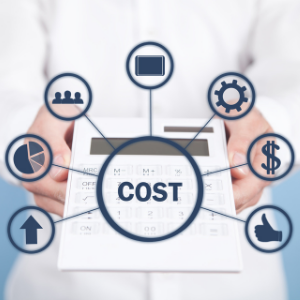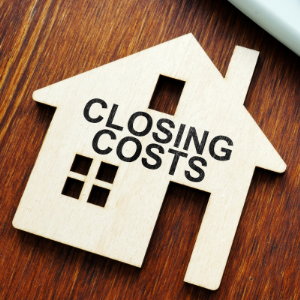
It’s crucial for anyone considering property investment in Dallas, TX, to understand the nature of closing costs, as they can significantly impact your overall investment. As such, a closing cost calculator is one of the pivotal resources a buyer requires to gauge hidden costs. This blog aims to outline what closing costs encompass, what buyers need to be prepared for, and what to expect. Each dollar is an investment, and closing costs are no exception. Therefore, knowing your spending, be it on taxes, insurance, or lender’s fees, makes you a savvy investor. This is the Dallas, TX closing costs calculator blog, and here are the steps and tips on how to minimize this amount and better control your finances.
Key Highlights
✦ In Dallas, closing costs refer to all expenses associated with completing the purchase of a home that contribute to the overall cost of the transaction.
✦ Buyers can always more accurately plan their finances after estimating expenses with closing costs calculators, especially taxes and insurance.
✦ In Dallas, larger loan amounts lead to more expensive interest and insurance, closing costs, and overall costs.
✦ Even small tactics, such as discussing a lender’s charge for closing costs and shopping for title insurance, are effective methods for lowering closing costs.
✦ Closing the deal at the end of the month helps reduce the amount of prepaid interest the borrower needs to pay, which in turn helps meet the borrower’s short-term cash flow needs.
Understanding the Basics of Closing Costs
Closing costs are a significant factor when buying a home in Dallas, TX, and include any additional expenses a buyer may incur upon closing on a house. This blog aims to outline the closing costs involved in Dallas, Texas, and identify the key closing costs, even if ‘standard costs’ is an appropriate label. Knowing the costs is crucial for budgeting properly when buying a home. This includes what you might pay in property taxes, title insurance, and additional charges from the mortgage lender, all of which are closing costs a buyer might have to bear.
| Closing Cost Components | Description | Financial Impact |
| Title Insurance | Protects against title defects | Typically 0.5%-1% of the loan amount |
| Property Taxes | Taxes owed on the value of the property | Prorated share based on closing date |
| Homeowners Insurance | Covers damage to the property | Annual premium paid upfront |
| Appraisal Fees | Cost of evaluating property value | Generally ranges $300-$500 |
| Loan Origination Fees | Charges for processing the mortgage | Typically 0.5%-1% of loan amount |
This table concisely outlines the various components and financial implications of closing costs in Dallas, ensuring a more precise understanding and preparation for buyers.
Typical Components of Closing Costs

In Dallas, TX, closing costs encompass several key factors related to the financial and legal obligations associated with acquiring real estate. Buyers need to understand these factors to budget effectively to avoid any surprises. Generally, these factors encompass the costs broken down into tax, cost, and insurance elements of the purchase.
One of the most significant factors related to closing costs is the loan itself, along with its associated costs. Determined from the purchase price and down payment, this affects several elements of closing costs. For instance, loan origination charges are fees related to the processing of your mortgage. These fees are usually considered negotiable and should be known to the buyer so that appropriate financial decisions can be made to save more money.
Title insurance is an essential component of closing costs that protects both the buyer and the lender. There are legal obligations that may arise from property ownership, and title insurance protects against these issues. The transaction itself is more complicated, and title insurance helps avoid numerous fees that may occur to make the transaction smooth. Other fees, such as a survey to establish and avoid disputes about boundaries, are also considered closing costs.
The costs associated with your mortgage make up a significant portion of your closing costs. What does this include? Here, you may consist of prepaid mortgage interest, which covers the period between the closing of your mortgage and your first mortgage payment. Additionally, protecting your property with a homeowners’ insurance policy that covers unexpected losses is also essential. If a borrower’s down payment is less than 20% of the purchase price, the lender will almost certainly require the borrower to pay Private Mortgage Insurance (PMI) associated with the loan. It may be removed as equity builds, however.
Budget affordability, which includes the ongoing expenses of property tax and homeowners’ association (HOA) fees, is a concern in some regions of Dallas, as these significantly impact your cost of living and mortgage payment.
For homeowners seeking a faster, simplified process, Investor Home Buyers in Dallas can help minimize many traditional closing costs by buying houses directly for cash. This approach can reduce lender fees, eliminate some administrative expenses, and streamline the closing process, making it an attractive option for sellers looking to save money and avoid complex transactions.
By understanding each component and exploring alternatives, such as Investor Home Buyers, Dallas buyers and sellers can efficiently navigate closing costs, ensuring a smoother and more predictable home-buying experience.
Utilizing a Closing Costs Calculator
A closing costs calculator is a vital tool for anyone looking to navigate the often complex and daunting financial aspects of purchasing a home. This calculator helps estimate the various expenses associated with finalizing a real estate transaction, including property taxes, insurance, and lender fees. In this section, we explore how to effectively use a closing costs calculator and highlight the advantages it offers for a seamless home-buying process in Dallas, TX. With these insights, you’ll be better equipped to handle your home purchase with strategic financial planning.
How to Use a Closing Costs Calculator Effectively
For homebuyers in Dallas, using the closing calculator helps them stay on track financially by calculating all expenses related to closing. Closing calculators can provide accurate results, but buyers must input the correct data, including the purchase price, loan amount, interest rate, property taxes, title insurance, lender fees, and inspection costs. Having inputs in an organized fashion allows for more accurate results and budgeting.
Buyers can break down costs by property taxes, mortgage fees, and insurance to better understand the expected expenses. When buyers understand the specific details, they can make more accurate offers on homes that fit within their budget.
Flexible calculators can adjust their equations, such as increasing interest rates or home insurance premiums, to create various scenarios. This can be particularly useful for buyers in Dallas, as market interest rates and property taxes are subject to significant fluctuations. Expecting buyers to estimate their expenses based on multi-year projections accurately is insufficient, so scenario-based buying is more effective.
Re-examine your calculations periodically. Closing costs tend to fluctuate with the market and can change quickly. This is why it is essential to reduce surprises and budget accurately by keeping the calculator up to date.
The calculator helps find opportunities that can be negotiated. Specific fees, such as some lender fees and title insurance, may be open to negotiation. With this analysis, buyers can pinpoint areas in the closing fees breakdown that can be minimized and implement strategies to make the home-buying process as cost-effective as possible. Particularly in Dallas, where the competition is relatively high, this is critical. Every dollar you save will make a massive difference to your overall investment.
The Benefits of a Closing Costs Calculator

A closing cost calculator goes beyond calculating the numbers. It also gives Dallas home buyers a primitive understanding to prepare and plan accordingly. One of its benefits is the ability to shed insight into the closing process. It allows buyers to view estimates of potential closing expenses, such as property taxes and mortgage insurance. Closing surprises are avoided.
The calculator helps with buyer closing cost estimates, which is essential for defining potential homes, affordability ranges, and realistic purchase values. Buyers avoid going overboard, as this ensures they have well-aligned financial decisions with the short- and long-term goals of the buyer.
Best of all, buyers can see which fees can be considered “potential savings” due to the itemized cost analysis. Tactically, buyers only need to spend time on the origination fees or lender charges. Savings can also be lost due to overspending without a clear strategy.
This is extremely important to Dallas buyers because the real estate market fluctuates significantly over time. Buyers only need to revisit and update interest rate estimates and property tax estimates. This marketing dynamic enables buyers to stay informed about the essential market throughout the buying process.
Ultimately, a closing costs calculator alleviates stress and builds confidence. By understanding all aspects of closing costs, buyers can negotiate with greater confidence and skill, resulting in a smoother and less stressful house-buying process.
Strategies for Managing Closing Costs
Managing closing costs effectively is critical when purchasing a home in Dallas, TX. Proper strategies not only help in minimizing expenses but also optimize your overall budget, making the home-buying process smoother and more predictable. We’ll explore practical tips to reduce these costs and discuss the benefits of using a cost calculator for efficient financial planning. By understanding these strategies, buyers can navigate their transactions with greater confidence, ensuring that they make sound financial decisions that align with their long-term goals.
Practical Tips to Minimize Closing Expenses
Closing costs can be reduced in Dallas, TX, with careful planning and a thorough review. A first step might be to contact your lender about waiving fees, such as origination or application fees. These charges can be pretty fluid, and capturing a broader range of lenders likely increases savings by allowing you to select favorable terms.
Another critical tactic involves rationing out the Loan Estimate. The Loan Estimate can be divided into rounding up. Paying attention to charges and spending less can help avoid unnecessary mistakes or charges. Noting these charges or contested fees can lead to substantial savings. For buyers who do not have sufficient cash on hand at closing, a no-closing-cost mortgage—where costs are rolled into the mortgage at a slightly higher interest rate—is priced slightly higher than the market price. However, weighing the short-term benefits of savings against the long-term expenses can sometimes be a better approach.
Another segment where costs can be contained is title insurance. All buyers need to do is contact multiple title insurance providers and ask if they will refinance their policy. If the title search is current, the expense can be lowered without loss of coverage.
You should not forget that closing costs can also be minimized, depending on the attention brought to scheduling. Closing on the last day of the month, for example, reduces interest and allows more cash to move freely for activities such as relocation.
For homeowners seeking a faster and simplified transaction, Investor Home Buyers can help minimize closing costs by buying houses directly for cash in Texas. This approach often eliminates lender fees, reduces administrative costs, and streamlines the closing process, making it an attractive alternative for sellers looking to save money and avoid traditional mortgage-related expenses. Reach out to Investor Home Buyers at (214) 253-4544 today!
By combining lender negotiation, careful fee review, strategic timing, and options like Investor Home Buyers, Dallas buyers and sellers can effectively manage closing costs. The key is being proactive, thorough, and resourceful throughout the entire process.
Leveraging a Costs Calculator for Budgeting

To adequately budget for your upcoming purchase, calculating closing costs is essential for Dallas homebuyers. Entering the loan amount, property tax, insurance, and HOA fees will help you build a comprehensive expense summary. Having a summary of the expected expenses will help you with unpleasant closing cost surprises.
You can also change the property’s interest rate, property taxes, or insurance premiums to see the changes in monthly payments and overall cost, which will help you better budget for the purchase. Having a great insight into the market will enable you to make informed and significant decisions.
In addition, the closing cost calculator will help you identify the more negotiable fees that you can discuss with lenders to help you lower the closing costs.
From price changes, real estate condition, and personal finances, the calculator will help keep everything up to date. This will help Dallas homebuyers improve their efficiency and confidence while purchasing a property.
You can better prepare for your home purchase by predicting and anticipating expenses using this calculator.
FAQs
What are closing costs in Dallas, TX?
In Dallas, TX, closing costs refer to the expenses that must be paid to complete the acquisition of a house. These can include taxes, insurance, lender fees, and other costs.
What’s the importance of having a closing costs calculator for Dallas residents?
A closing costs calculator saves buyers time by estimating costs such as taxes, insurance, and lender fees. With this estimation, buyers will be able to have a more effective budgeting plan.
What are the ways buyers can take to cut down on closing costs?
Buyers can negotiate lender fees, buyers’ closing dates to result in lower paid closing interest fees, and shop for more affordable title insurance.
What are the most common parts that make up closing costs?
The most common components that make up closing costs are the loan origination fees, property title, insurance, and taxes. These parts contribute to the closing costs when purchasing a home.
In what ways do property taxes in Dallas affect the closing costs?
The absence of a state income tax means property taxes in Dallas will be higher, which increases the closing costs and mortgage costs a buyer will have to pay.
Helpful Dallas Blog Articles
• Move-out timeline after foreclosure auction in Dallas, TX
• Cost to List Your Dallas, TX, House on MLS
• Sell a House with Owed Property Taxes in Dallas, TX
• Sell a Home with a Quitclaim Deed in Dallas, TX
• Expert Tips For Selling A Water-damaged House In Dallas, TX
• Guide To Filing A Quitclaim Deed For Real Estate In Dallas, TX
• Selling a Fixer-Upper House In Dallas, TX, Without Major Renovations
• Evicting A Tenant When Selling Your House In Dallas, TX
• Capital Gains Tax After Selling a House in Dallas, TX
• For Sale by Owner Buyers Agent Commission in Dallas, TX
• Can You Sell a House with Tenants in Dallas, TX?
• Can I Sell My House in Dallas, TX, If I Am in Forbearance?
• Average Cost to Sell a House in Dallas, TX

